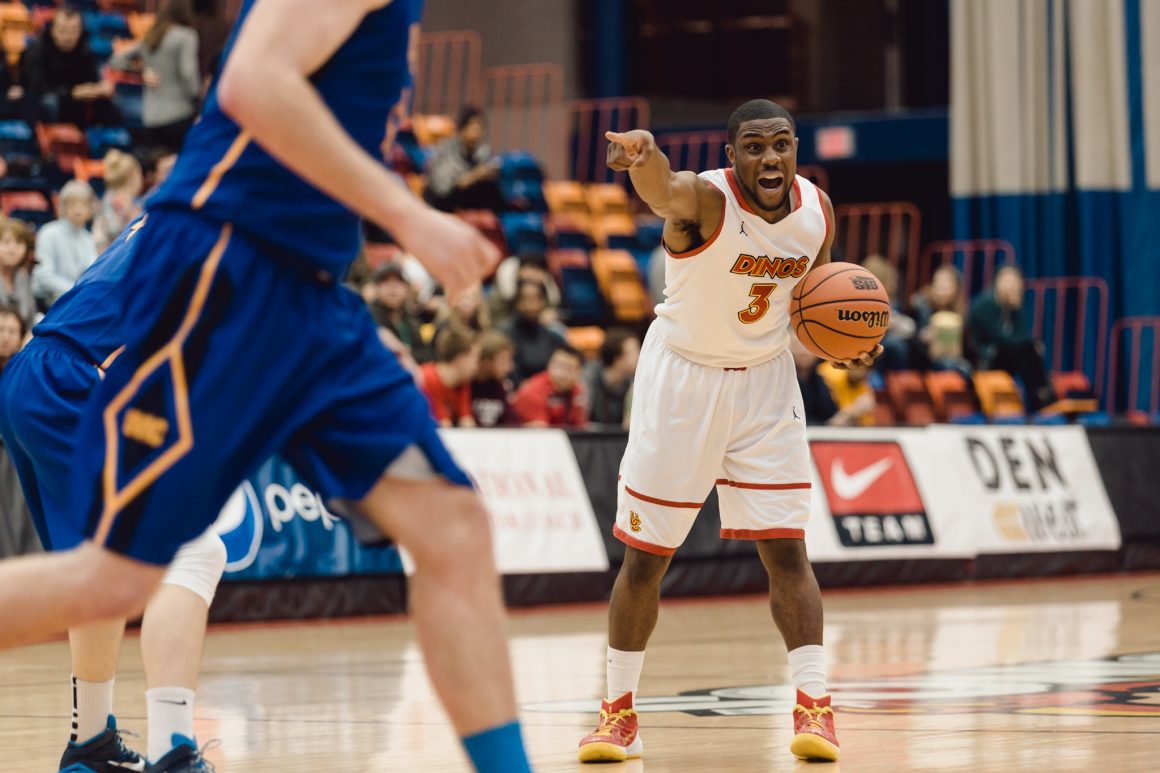
Trash-talk an unavoidable part of sport
By Christie Melhorn, September 1 2017 —
While it can be crass and petty, trash-talk is also fun and enjoyably nasty. It lets us release pent-up frustration, shake off anxiety and can even boost confidence. We’ve all indulged in it at some point — consider all the times you’ve declared you’re going to “slay” or “kill” an assignment or test. But in the sports world, trash-talk can be risky, which makes it that much more exciting. It’s a complex art and strategy that can impede or enhance a player’s performance.
University of Calgary men’s hockey coach Mark Howell says that trash-talk is an inherent part of sports.
“Trash-talking is part of every sport, especially every team sport,” Howell said. “It’s a comical and humorous way to communicate with other teams but also to get under somebody’s skin to get them off their game.”
Howell says that despite its reputation for causing conflict, trash-talk can generate friendly competition and can even be a form of bonding.
“On our team, there are a handful of guys who engage in it. Sometimes our players know the people they’re engaging in it with. They played with them in junior or minor hockey,” Howell said. “They maybe have some stories about one another. Or sometimes they just have a simple, humourous or candid comment about somebody on the opposing team.”
However, Howell says trash-talk can easily backfire.
“You’ve got to be careful of getting yourself off your own game. Players who don’t trash-talk often just don’t want to get distracted,” Howell said.
A study published in the Journal of Social Pyschology followed the effects of trash-talking among 40 male participants in a Madden NFL 08 video game tournament. While this was a video game, 95 per cent of participants admitted to trash talking when playing physical sports as well.
The study showed that trash-talking significantly affects self-confidence and performance. When trash-talking was prohibited, the self-confessed trash-talkers demonstrated high anxiety. The study explains that this is due to the loss of control gained through verbal aggression. This suggests that trash-talk might be a greater mechanism of empowerment for the player delivering it than disempowerment for the recipient.
While Howell says that trash-talking can be a light-hearted manipulation strategy, he notes that there are ethical considerations when delivering it.
“You don’t want to ever get too personal or too close to somebody’s personal life — you don’t know every side of their situation,” Howell said. “You don’t want to ever be slanderous or racist. Those are lines you should never cross.”
Howell also says trash-talk has a time and place.
“Most of it should be left inside the game itself. I don’t think there’s really a place for it before or after a game. As a professional, you want to respect your program, your opposition and your league,” Howell said.
Most sports leagues prescribe a code of conduct that discourages trash-talk. The U of C athletics department follows the USports code of student athlete conduct, which states, “Student athletes are expected to display sportsmanship both on and off the playing field,” and “Unsportsmanlike conduct includes inappropriate behavior, language, gesture or action, which demeans, physically intimidates or endangers others.” It also says student-athletes should “conduct themselves in a manner reflecting positively on themselves and on their institution.”
However, a lot of trash-talk occurs under the radar and out of earshot of referees. Howell says he trusts that when his players engage in it, they do so with tact.
“On our team, trash-talk is mostly about getting someone off their game — just banter with somebody they know on the ice and have some fun,” Howell said. “At our level, I would say the majority of it hardly ever happens beyond the floor. Our guys are mature people and I think they understand that they should not cross the line.”
Howell also notes that the nature and frequency of trash-talk has evolved alongside technological advances.
“With the presence of social media and the awareness of subjects around social responsibility, you don’t see players crossing those lines as much anymore,” he said.
Trash-talking can be a fun way to stir the pot. However, if it reaches an excessive boil, it can be distasteful and damaging. Whether permitted or not, trash-talk is a part of sports that will continue to entertain or piss off athletes and spectators alike.
